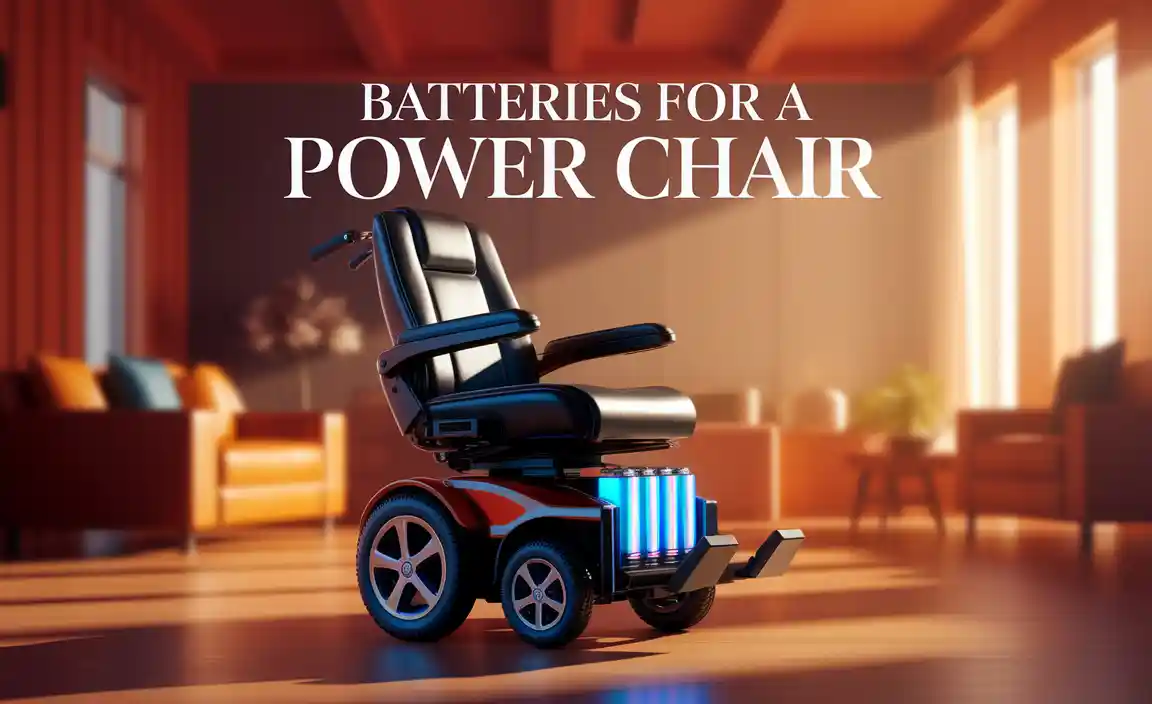Imagine a playground where every child can swing with joy. Doesn’t that sound wonderful? Now, think about a swing that understands what special needs kids might require. It’s called an adaptive swing. Did you know that swings like these can help children feel happier and more confident? Let’s explore how swings can make a big difference in their playtime.
Lucy loves to swing high and feel the wind on her face. But sometimes she needs a little extra help. That’s where the adaptive swing comes in. It offers extra support, making sure she is safe and secure. Isn’t it amazing how something so simple can mean so much? These swings come with special seats or harnesses, making swinging fun and safe for everyone.
Did you know that swinging isn’t just about fun? It also helps kids learn balance and coordination. What if we made playgrounds inclusive for all? Adaptive swings are a big step in that direction. They ensure every child can join the fun, no matter their ability.
So, could swings be the secret to better playgrounds? Let’s dive deeper and see how adaptive swings change lives and create happier, friendlier places to play.
Understanding Adaptive Swings For Special Needs Kids Adaptive Swings Are Essential Playground Equipment Designed Specifically To Cater To The Needs Of Children With Special Needs. These Swings Provide A Safe, Enjoyable Outdoor Activity That Enhances Both Physical And Mental Development. An Adaptive Swing Offers Therapeutic Benefits, Ensuring That Children With Varying Capacities Can Experience The Joy Of Swinging, Which Can Positively Contribute To Their Sensory And Vestibular Development. For Special Needs Kids, The Standard Playground Swings Can Pose Challenges And Potential Safety Issues. Adaptive Swings Address These Concerns By Offering Additional Support And Safety Features. Here, We’Ll Explore The Different Types Of Adaptive Swings Available, Their Benefits, And Factors To Consider When Choosing The Right Swing. Adaptive Swings Are Equipped With Features Like Bucket-Style Seats, Safety Harnesses, And Headrests, Ensuring A Secure Seating Position For The Child. Some Swings Are Also Designed To Accommodate Wheelchairs, Allowing Easier Access And Inclusivity. This Means That Children Who Are Otherwise Unable To Use Traditional Swings Due To Mobility Or Sensory Integration Issues Can Still Enjoy Playtime With Their Peers. The Benefits Of Adaptive Swings Extend Beyond Mere Entertainment. They Help In Improving Balance, Coordination, And Muscle Strength. The Swinging Motion Stimulates The Vestibular System In The Brain, Which Is Crucial For Maintaining Balance And Spatial Orientation. For Children With Autism Or Sensory Processing Disorders, The Gentle, Rhythmic Motion Can Have A Calming Effect, Reducing Anxiety And Stress. When Choosing An Adaptive Swing For A Child With Special Needs, Several Factors Should Be Considered. Safety Is Paramount, So Ensure That The Swing Comes With Adequate Restraint Systems And Fits Securely. Durability Is Also Important, As The Swing Must Withstand Frequent Use And Various Weather Conditions. Consider The Size And Weight Capacity To Ensure That It Aligns With The Child’S Needs. In Conclusion, Adaptive Swings For Special Needs Provide More Than Just An Opportunity For Fun; They Play A Vital Role In Enhancing Physical And Mental Well-Being. They Offer A Gateway For Inclusive Play, Allowing Children With Special Needs To Engage, Interact, And Enjoy Activities Alongside Their Peers On The Playground.
Adaptive Swing for Special Needs
Imagine your friend loves swinging but can’t join the fun because of a wheelchair. Sounds unfair, right? That’s where adaptive swings come in. They are specially made swings to help kids with special needs enjoy the playground. These swings often have safety harnesses, wide seats, and barrier-free designs. They make playing accessible and fun for everyone. With adaptive swings, every child can feel the joy of flying through the air, creating laughter and memories.Understanding Adaptive Swings
Definition of adaptive swings. Importance of adaptive swings for children with special needs.Adaptive swings are special swings designed for kids with unique needs. They offer support and safety. For children with disabilities, swinging can be challenging. Adaptive swings help everyone enjoy the fun. These swings are important for many reasons:
- Boosts Confidence: Children feel happier and more confident when they can play like others.
- Develops Balance: Swinging improves balance and coordination.
- Encourages Social Interaction: Kids can play together, making new friends.
- Provides Relaxation: Swinging offers a calming experience, reducing stress and anxiety.
Why are adaptive swings important for children with special needs?
Adaptive swings are important for children with special needs because they grant equal access to playground fun. This promotes inclusion and development. Kids gain social skills while playing, and it nurtures emotional growth. Providing inclusive play options is a key step toward a more equitable society. It encourages children to learn from each other and appreciate differences, which fosters a sense of community and belonging.Adaptive swings bring smiles and joy to children’s faces. They show that every child deserves the chance to play and have fun. Investing in adaptive play equipment makes the world a brighter and more inclusive place for all. As one parent said, “It’s wonderful to see my child laughing and feeling like they belong.”
Benefits of Adaptive Swings
Physical benefits: improving balance and coordination. Emotional and social benefits.Imagine swinging high up in the sky. Adaptive swings make this possible for every kid. They do more than bring joy. They help with balance and coordination. Kids build stronger muscles and stay fit.
What about feelings? Swings make kids feel happy and relaxed. They make new friends, sharing laughs and fun. Together, swinging builds strong friendships and bright smiles.
Why are adaptive swings important for kids with special needs?
Adaptive swings offer support and comfort. They give all kids a chance to play. Kids with special needs feel included. They explore the world in their way.
- Physical Growth: Swinging helps muscles grow strong.
- Social Skills: Kids learn to take turns and share.
- Emotional Well-being: It boosts confidence and happiness.
How to Choose the Right Adaptive Swing
Factors to consider based on individual needs. Safety features and guidelines.Choosing an adaptive swing is like picking the perfect pair of sneakers for a special adventure. You want it to fit just right and ensure comfort. Start by evaluating the individual’s needs—consider their size, weight, and any special requirements like head or torso support. Safety is crucial! Look for features like sturdy harnesses and cushioned seats. Did you know most adaptive swings can carry up to 250 lbs? That’s like swinging with two toddlers at once!
To help you decide, here’s a handy table:
| Factors | Considerations |
|---|---|
| Individual Needs | Size, weight, support |
| Safety Features | Harnesses, cushioned seats |
Guidelines suggest checking the swing’s installation regularly. After all, safety first! With these tips, you’re all set to make swing time both fun and secure.
Installing Adaptive Swings: Best Practices
Installation requirements and tips. Maintaining the swing for longterm use.Installing an adaptive swing is like fitting a superhero with their cape! Safety first is our motto. First, pick a sturdy area with soft, grassy ground. Concrete isn’t as fun to land on. Gather all tools, double-check bolts, and ensure ropes are strong enough to hold an elephant (or a child with gusto!). For long-lasting fun, give it a friendly check-up now and then, like a doctor’s visit for swings. Keep it clean and rust-free. Happy swinging!
| Tips | Details |
|---|---|
| Location | Soft, grassy surface |
| Tools | Check bolts and ropes |
| Maintenance | Regular check-ups, clean for rust |
Incorporating Adaptive Swings in Therapy
How therapists use swings to support development. Case studies of successful integration.How do therapists use swings to support development?
Therapists use swings to aid physical and emotional growth. Swings offer gentle motion, which helps kids relax. This lets them focus better and improve balance. Therapists observe how children react, then tailor sessions for specific needs. Imagine flying through the air, feeling calm and happy. That’s how swings help kids.How successful are adaptive swings in therapy?
Studies show that adaptive swings often lead to great progress. Take, for example, a child named Sam. He struggled with coordination. With swinging therapy, he showed significant improvement after several weeks. His parents noted, “Sam became more confident and playful.” This is no magic; it’s about the right tools helping the right way.Using adaptive swings in therapy is like giving a gentle push towards success. They support physical, social, and emotional development. Swings are special: they offer joy and growth at the same time.
- Children enjoy while improving balance.
- Swings help in calming the mind.
- Each session adjusts to a child’s needs.
Where to Buy Adaptive Swings
Recommended brands and retailers. Considerations for cost and quality.Looking for an adaptive swing that’s a perfect fit for your superhero? You’ll find a treasure trove of options from popular brands, such as Little Tikes, Special Needs Solutions, and Frame Set Builder! These brands are known for making quality products that can handle the toughest playtimes.
Buying direct from trusted retailers like Amazon, Target, or even your local playground equipment supplier ensures you get the best deals—not just for your wallet, but also for your peace of mind. Remember, quality matters, but you don’t need a billionaire budget for happiness in the backyard!
| Brand | Known For |
|---|---|
| Little Tikes | Durable outdoor toys |
| Special Needs Solutions | Therapeutic designs |
| Frame Set Builder | Customizable setups |
Cost and quality are key. Before making your pick, consider whether you want a swing that grows with your child or one with special features for added comfort. And if you’re worried about cost, don’t sweat it too much; discounts and sales can make these adaptive swings more affordable than a trip to the movies!
Conclusion
Adaptive swings are great for kids with special needs. They provide fun, safety, and help with balance. When you use these swings, you can play and grow strong. Ask your teacher or guardian to help you try one. Discover how they can make playtime even better for everyone. For more fun ideas, keep exploring and reading!FAQs
What Are The Key Features That Make A Swing Adaptive For Individuals With Special Needs?Adaptive swings help everyone enjoy swinging safely. They have higher backs and sides for good support. Some swings have soft restraints or harnesses to keep you safe and snug. They often have more space for comfortable sitting. These swings make sure everyone can have fun!
How Can Adaptive Swings Benefit Children And Adults With Sensory Processing Disorders Or Physical Disabilities?Adaptive swings can help people with sensory processing disorders or physical disabilities feel good and have fun. They are special swings that fit different needs, letting everyone swing safely and comfortably. Swinging helps calm the body, making it easier to relax or focus. Plus, it’s a great way to play and feel happy!
What Considerations Should Be Made When Selecting An Adaptive Swing For A Person With Special Needs?When picking an adaptive swing for someone with special needs, think about their comfort and safety. Make sure the seat has straps to hold the person safely. Check if the swing can handle their weight. Ask if they like swinging fast or slow, and choose one that fits their preference. Always read the instructions to use it right.
Are There Specific Safety Standards Or Certifications That Adaptive Swings For Special Needs Must Meet?Yes, adaptive swings must meet special safety standards. The ASTM (American Society for Testing and Materials) checks if playground equipment is safe. These swings should be strong and secure. They must be safe and comfy for kids who use them.
How Can Caregivers And Educators Integrate Adaptive Swings Into Therapy Or Recreational Activities For Those With Special Needs?Caregivers and teachers can use adaptive swings to help kids with special needs have fun. These swings can make kids feel happy and relaxed. We can use them during playtime or in therapy sessions. Swinging helps in building strength and making friends. We always stay close, so kids are safe and having a good time.








